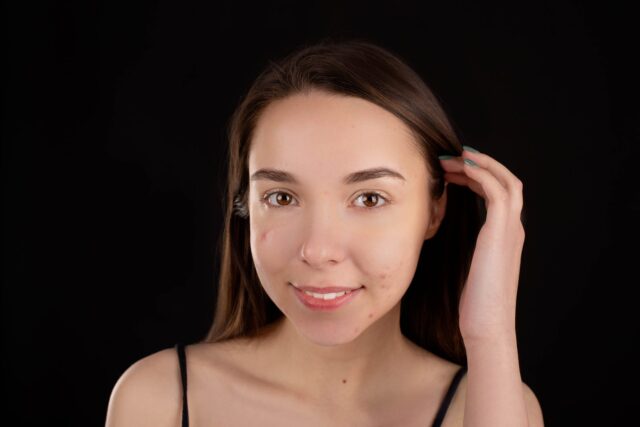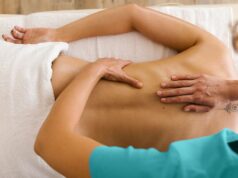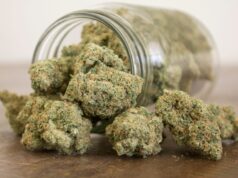Do your cheeks make you look like you’re blushing all the time? Are your breakouts getting worse from constantly wearing the mask? If the answer to one or both of these is a resounding yes, well, then you might just be interested in what we have to say today.
Not everyone is willing to take antibiotics or other medication to treat their acne or rosacea-flushed cheeks, so it might be great to look at some alternative options. Natural remedies like herbs came to our mind first, but before we get into specifics, let’s take a small step back and reintroduce ourselves to the problem at hand. Once we do that, we’ll get to the solution.
Let’s begin.
What Are Acne And Rosacea?
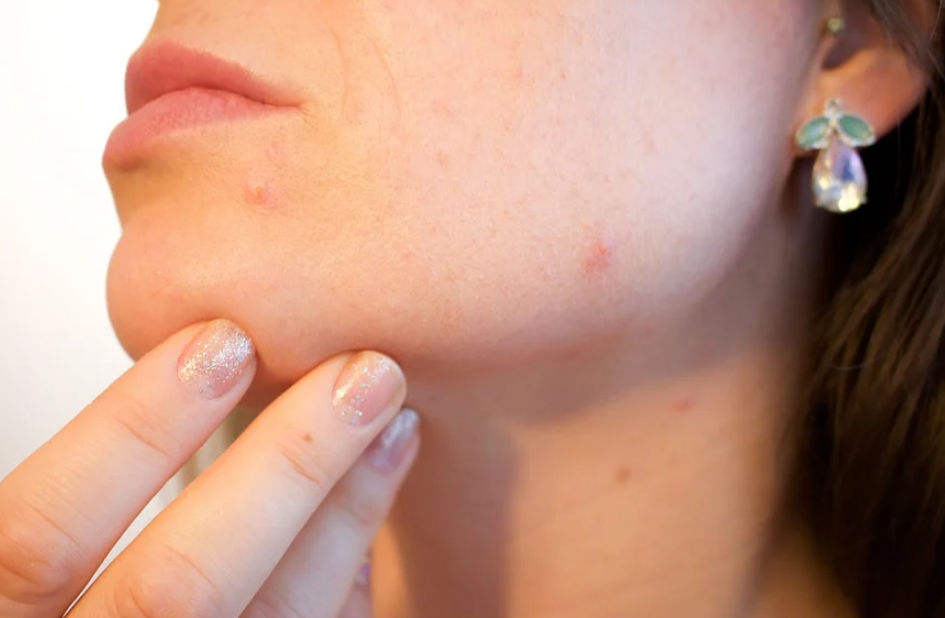
Millions of people struggle with acne, but even so, most of us don’t really know what acne are, why they appear or why they are so persistent sometimes. Acne is a skin condition, plain and simple. It occurs when the hair follicles on your face or body become plugged with oil and/or dead skin cells. Once that happens, the follicle becomes infected and causes blackheads, pimples or whiteheads.
All of these can be both small and large and pain-free and painful. Most commonly, it’s the face that suffers the most, but the chest, upper back and even thighs and glutes can become acne-infested.
Rosacea is also a skin condition, although one that most commonly “only” causes redness and acne-like bumps on your cheeks, nose, forehead and chin. However, just like acne, rosacea can also affect other body parts as well.
The thing is, rosacea is a chronic condition, and once it develops and settles in, the flare-ups could happen at any given time, and what’s worse, the flare-ups can sometimes last for months.
Just like acne, rosacea also has a few different types. Four of them to be precise.
The four main types of rosacea are erythematotelangiectatic, papulopustular, phymatous, and ocular. All of these are quite similar, although symptoms and areas they affect vary from one to another.
What Are The Best Remedies For Acne And Rosacea Treatment?
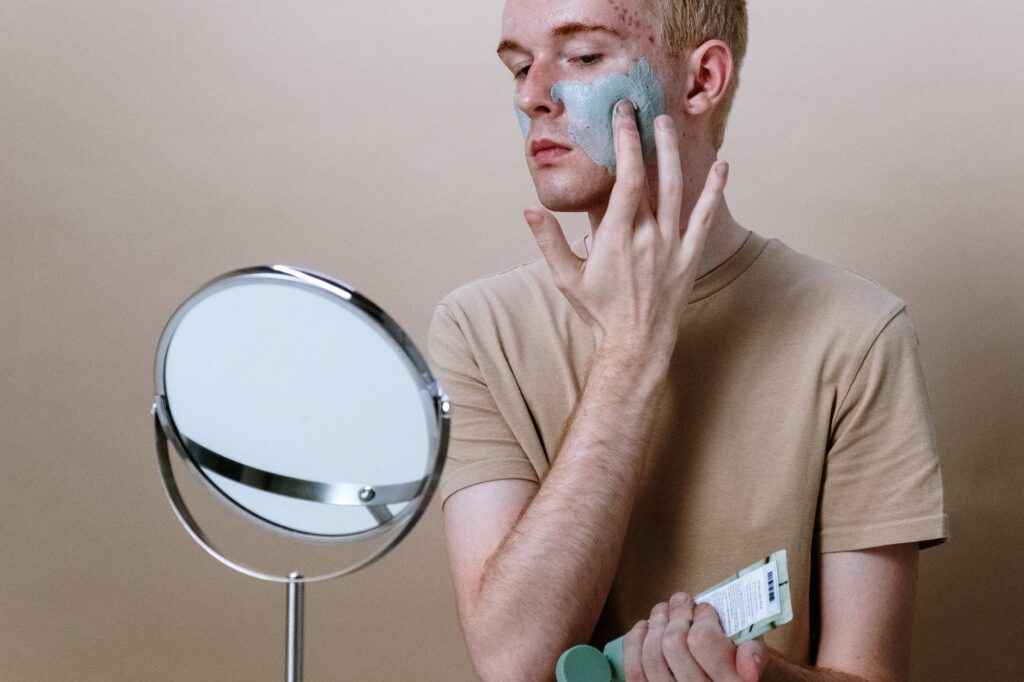
If these get too severe, most people go see a doctor, and they get prescribed antibiotics.
And, generally speaking, there’s no better treatment for these than antibiotics. However, natural remedies can be useful in treating these conditions, as well. What’s even better is that natural remedies can be used with antibiotics without any worries of side effects.
Also, you should check out SkinVite which proved to be quite useful for rosacea and acne.
In our own experience, the best and most effective natural remedies are actually herbs. More precisely, these five:
• Green Tea Leaf Extract
• Neem Leaf Powder
• Organic Spirulina Powder
• Organic Chlorella Cracked Cell Wall Powder
• Organic Aristotelia Chilensis Fruit Powder (Maqui Berry)
So, let’s learn a bit more about them.
Top 5 Herbs Used For Rosacea And Acne
1. Green Tea Leaf Extract
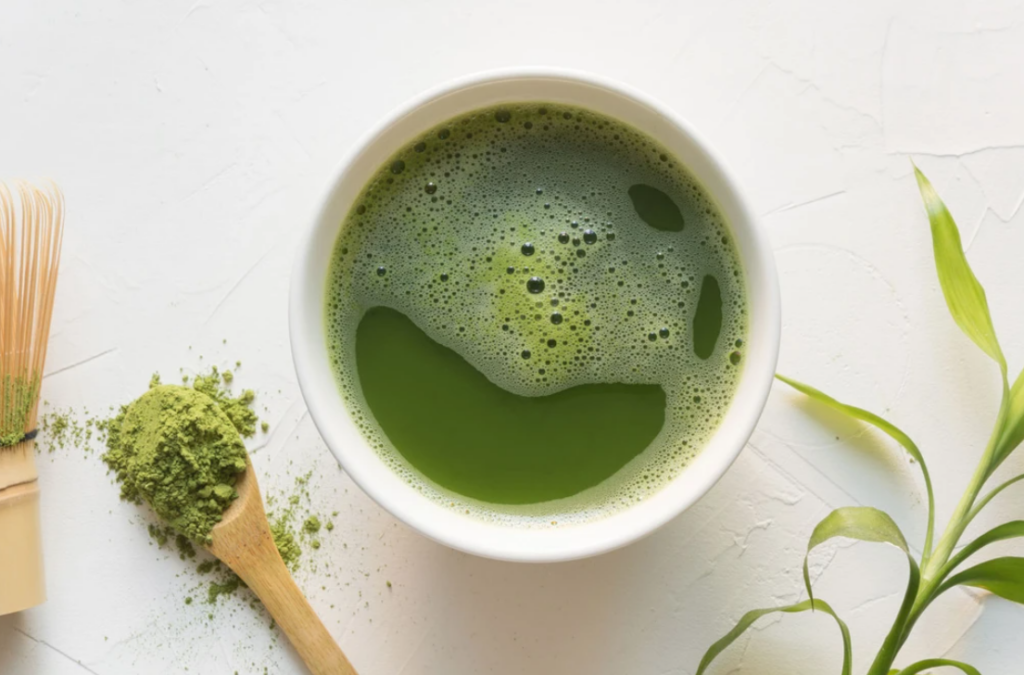
Green tea is already one of the most beloved drinks in the world. Its health benefits are so vast, we couldn’t even begin to name all of them, so we’ll focus on the skin ointments and creams that are made from green tea leaf extract.
Due to its soothing and healing nature, the green tea leaf extract is most effective against papulopustular rosacea, and according to several clinical trials, women who were treated with green tea extract had a 75% improvement in rosacea, compared to the ones that were not.
2. Neem Leaf Powder
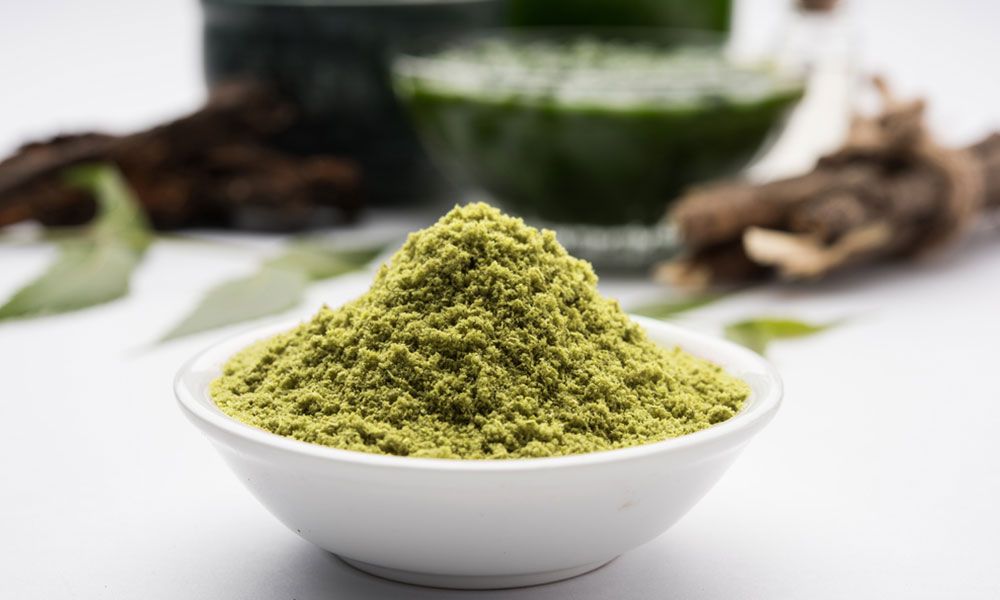
Neem leaf has been used for centuries for an array of health problems. It has been known to treat everything from upset stomach and fever all the way to diabetes and even leprosy. Also, it is known to treat skin conditions like skin ulcers, rosacea and acne.
Its natural anti-inflammatory, antibacterial, antifungal and antimicrobial properties make it suitable for all kinds of applications, which is why skin ointments rich with Neem leaf powder are so effective against redness, itchiness and swollenness caused by acne and rosacea.
Neem leaf is also rich in antihistamines and antioxidants and is also quite moisturizing, which is why you’ll see Neem leaf powder on the label of several skin ointments, creams and even supplements.
3. Organic Spirulina Powder
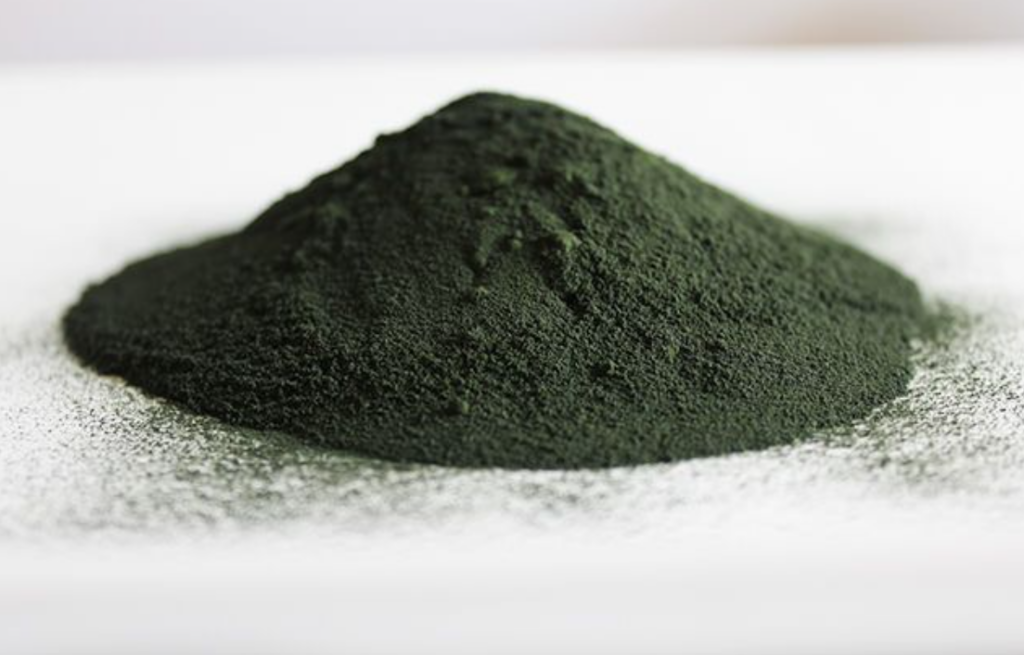
Spirulina, a type of green algae, is one of the most nutritious foods on the planet. Its array of health benefits make it useful both as a dietary supplement as well as an excellent addition to your skincare routine, which is the part we’re interested in.
Based on several studies conducted in the past few years, organic spirulina powder is a welcome ingredient in your skincare routine. Spirulina is a protein, and it contains all the essential amino acids and omega-3 acids, as well as several vitamins, including vitamin B. In addition to that, spirulina’s also antibacterial and anti-inflammatory, which makes it a viable option for treating conditions like acne, rosacea, eczema and even psoriasis.
4. Organic Chlorella Cracked Cell Wall Powder
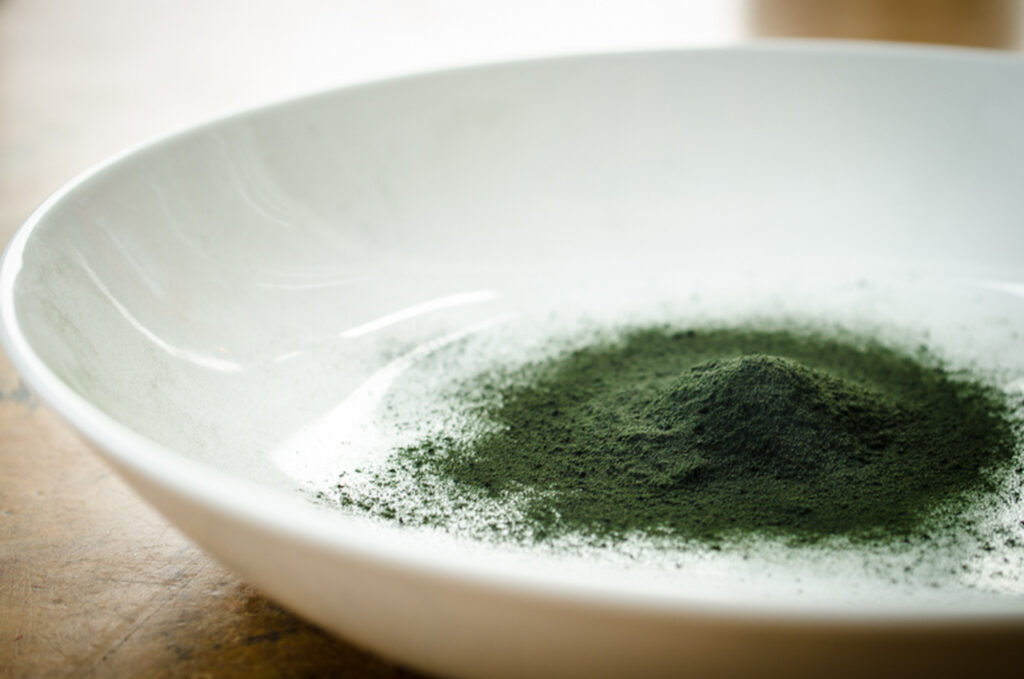
Chlorella is another algae used as an ingredient in creams, ointments and supplements for treating acne and rosacea. It is a freshwater, green algae. Now, despite being a single-cell organism, we can’t digest chlorella on its own because of its hard cell wall, so in order to reap the benefits of this super-nutritious algae, we have to take it as a supplement, hence the “cracked cell wall “ in the organic chlorella cracked cell wall powder.
Either way, just like spirulina, chlorella is rich in vitamin B and C, iron, omega-3 acids, fibre and other vitamins and minerals. It is also antibacterial and anti-inflammatory and is an antioxidant. All of these combined make it more than suitable enough for treating skin conditions like acne or rosacea.
5. Organic Aristotelia Chilensis Fruit Powder (Maqui Berry)
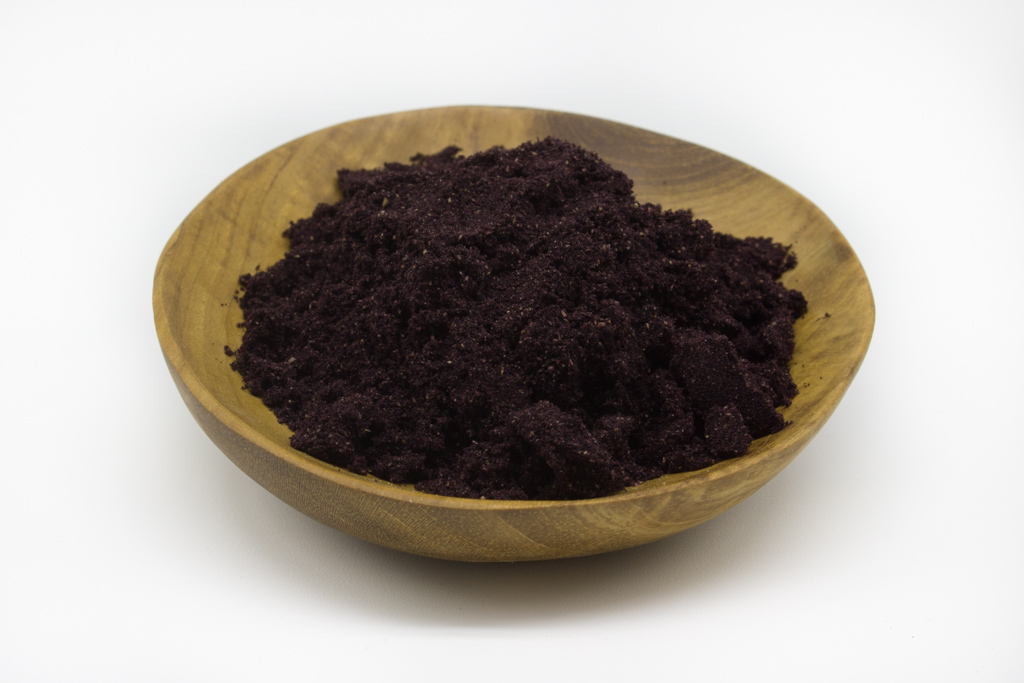
Maqui berry or Aristotelia chilensis is an exotic food found in South America, is also said to be more than useful in treating acne and rosacea, as well as an array of other things. Maqui berry is an antioxidant superfruit, and its powder is used in many skincare supplements.
This tiny little fruit has been used for centuries for its anti-inflammatory properties, as well as positive effects on sugar levels and the cardiovascular system. And, according to a recent study, the maqui berry powder supports eye health, making it suitable for dealing with ocular rosacea.
Conclusion:
These five natural remedies have the potential to make your skin conditions bearable, and possibly even treat them. However, these are not treatments, nor should they be treated as such. They’re simply a remedy that you could benefit from, which does not mean that these will cure and/or successfully treat chronic rosacea or full-blown acne.
For serious skin conditions, we would still advise visiting a dermatologist.

